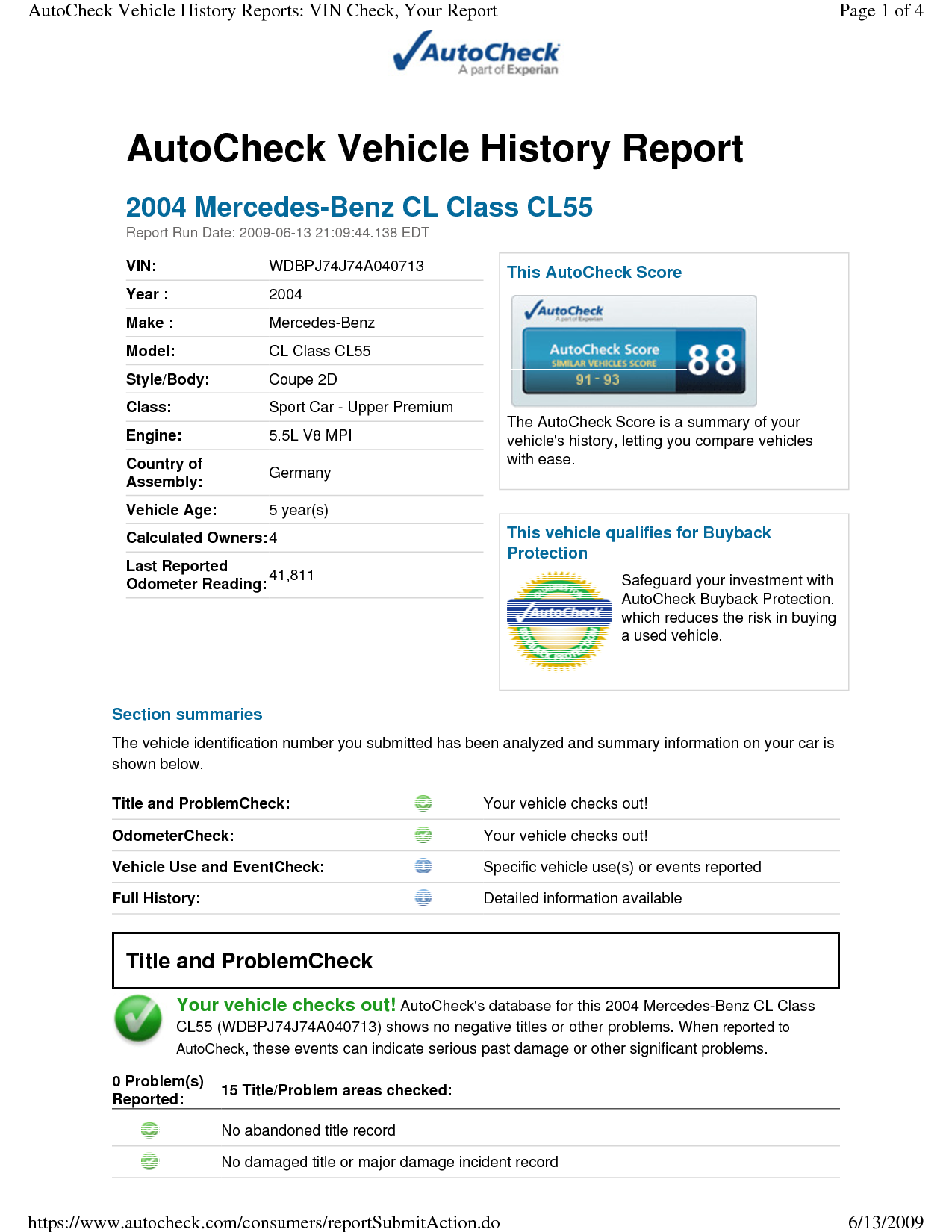Car History Report provides vehicle history from multiple sources. Carfax focuses on detailed data from its extensive database.
Car History Report and Carfax are essential tools for anyone buying a used car. These reports offer crucial information about a vehicle’s past, helping buyers make informed decisions. Car History Report gathers data from various sources, including insurance databases and salvage yards.
Carfax, on the other hand, provides detailed records using its proprietary database. Both reports can reveal accidents, title issues, and previous ownership. Understanding their differences can save you money and prevent potential headaches. Choose the right report to ensure you invest in a reliable, safe vehicle. This knowledge can make the car-buying process smoother and more secure.
Car History Report Basics
A Car History Report provides crucial details about a vehicle’s past. It helps buyers make informed decisions. These reports are essential for assessing the value and safety of a car.
What It Includes
A Car History Report typically includes:
- Accident history
- Title information
- Odometer readings
- Service and maintenance records
- Ownership History
- Recall information
Sources Of Information
The data in a Car History Report comes from various reliable sources:
- Department of Motor Vehicles (DMV)
- Insurance companies
- Auto repair shops
- Car dealerships
- State inspection stations
These sources provide accurate and up-to-date information. This ensures the report’s reliability and usefulness.
| Source | Type of Information |
|---|---|
| DMV | Title, registration, and odometer readings |
| Insurance Companies | Accident history and claims |
| Auto Repair Shops | Service and maintenance records |
| Car Dealerships | Ownership history and recalls |
| State Inspection Stations | Inspection results and safety checks |
Understanding these basics helps you better evaluate any vehicle. It ensures you know what to expect from a Car History Report.

Credit: blog.drivetime.com
Carfax Report Basics
A Carfax report is an essential tool for used car buyers. It provides crucial details about the car’s history. This helps buyers make informed decisions. Let’s explore the key features and data collection methods of a Carfax report.
Key Features
A Carfax report includes several key features that help buyers assess a vehicle’s condition:
- Accident History: Lists any reported accidents, big or small.
- Title Information: Shows if the car has a clean title.
- Service Records: Details of maintenance and repairs.
- Ownership History: Number of previous owners and duration of ownership.
- Mileage Verification: Confirms the accuracy of the odometer reading.
- Recall Information: List any recalls and if they were addressed.
Data Collection Methods
Carfax collects data from multiple sources to ensure accuracy:
- DMV Records: State departments of motor vehicles provide registration details.
- Insurance Companies: Reports from insurers about accidents and claims.
- Auto Auctions: Information from car auctions about sales and conditions.
- Repair Shops: Service centers report maintenance and repairs.
- Police Departments: Law enforcement agencies report accidents and thefts.
These data sources ensure that the Carfax report is detailed and reliable. This helps buyers avoid potential issues with used cars.
Comparing Coverage
When buying a used car, knowing its history is crucial. You want to know about any accidents, repairs, and ownership history. This is where the Car History Report and Carfax come in. Both offer detailed reports, but how do they compare in coverage? Let’s delve into the details.
Data Sources
Car History Report gathers data from various sources. These include insurance records, DMV records, and auto auctions. They also check salvage yards and rental companies. This broad range ensures comprehensive coverage.
Carfax also pulls data from multiple sources. They get information from police records, service shops, and fire departments. Carfax partners with over 100,000 sources. This extensive network provides robust and reliable data.
Information Depth
Car History Report provides detailed accident reports. It covers odometer readings, title history, and lemon checks. They also provide recall information and service records. This level of detail helps you understand the car’s past.
Carfax offers a similar depth of information. They include detailed service history and accident reports. Carfax also provides details on previous owners and usage types. This could include personal, lease, or rental use.
| Feature | Car History Report | Carfax |
|---|---|---|
| Data Sources | Insurance, DMV, Auctions, Salvage Yards, Rentals | Police, Service Shops, Fire Departments, 100,000+ Partners |
| Information Depth | Accidents, Odometer, Title, Lemon, Recalls, Service | Service History, Accidents, Owners, Usage Types |
Both Car History Report and Carfax offer valuable insights. Understanding their differences helps you make an informed decision. Choose the one that best meets your needs for a reliable car purchase.
Accuracy And Reliability
When choosing between a Car History Report and Carfax, accuracy and reliability are crucial factors. Both services claim to provide comprehensive data on a vehicle’s history. But how do they compare? We’ll explore common errors and user reviews to help you make an informed decision.
Common Errors
Car history reports can sometimes contain errors. These errors might include:
- Incorrect mileage readings
- Missing accident records
- Unreported maintenance or repairs
Carfax is known for its extensive database. Yet, it can still miss some details. Car History Reports also strive for accuracy but may lack the depth of data Carfax offers. Always cross-check information from multiple sources.
User Reviews
User reviews provide insights into the reliability of these services. Below is a summary of what users say:
| Service | Positive Feedback | Negative Feedback |
|---|---|---|
| Carfax | Comprehensive data, easy to read | Expensive, occasional missing data |
| Car History Report | Affordable, straightforward | Less detailed, some inaccuracies |
Users appreciate Carfax for its detailed reports. Yet, they often mention the high cost. Car History Reports are praised for their affordability but sometimes lack depth.
Cost Comparison
Many people look at Car History Report and Carfax for car details. Comparing their costs helps understand which offers better value.
Price Breakdown
Both Car History Report and Carfax offer different pricing tiers. Let’s break down their costs:
| Service | Single Report | Multiple Reports |
|---|---|---|
| Car History Report | $10 | $25 for 3 reports |
| Carfax | $39.99 | $99.99 for 5 reports |
Value For Money
Car History Report is cheaper than Carfax. This makes it a good choice for budget-conscious buyers.
Carfax offers more detailed reports. The higher price reflects the extensive information provided.
- Car History Report provides basic details for a lower cost.
- Carfax includes comprehensive data, justifying its higher price.
Both services offer useful insights. Choose based on your budget and detailed needs.

Credit: www.indyautoman.com
User Experience
When choosing between a Car History Report and Carfax, user experience is key. A smooth, intuitive interface can make all the difference. Let’s dive into the user experience for each service.
Ease Of Use
Both Car History Report and Carfax offer user-friendly websites. Each service aims to make navigating and understanding vehicle history simple. But how do they compare?
- Car History Report: The interface is clean and straightforward. Users can quickly enter a VIN and get results. Reports are easy to read, with key details highlighted.
- Carfax: Carfax also provides a user-friendly experience. The website is visually appealing with intuitive navigation. Reports are detailed but easy to understand, with important information upfront.
Customer Support
Good customer support can enhance the overall experience. Let’s see how Car History Report and Carfax support their users.
| Service | Customer Support Options | Availability |
|---|---|---|
| Car History Report | Email, Live Chat | 24/7 |
| Carfax | Email, Phone, Live Chat | Monday to Friday |
Both services offer multiple ways to get help. Car History Report provides 24/7 support. Carfax offers phone support during weekdays. Each option caters to different user needs.
Making The Choice
Choosing between a Car History Report and Carfax can be challenging. Both provide valuable information, but they differ in some aspects. This section will help you make an informed choice by examining key factors.
Factors To Consider
When selecting between a Car History Report and Carfax, consider these essential factors:
- Cost: Carfax reports are generally more expensive than other car history reports.
- Data Sources: Carfax uses data from many sources including police records and service shops. Other reports may rely on different or fewer sources.
- Coverage: Carfax provides detailed reports that include accident history, service records, and title information. Other reports might not be as comprehensive.
- Accuracy: Both Carfax and other reports strive for accuracy, but discrepancies can occur. Always verify critical information independently.
- User Experience: Carfax offers a user-friendly interface and detailed explanations. Other reports might be less intuitive.
Final Recommendations
Here’s a quick comparison to help you decide:
| Feature | Carfax | Other Car History Reports |
|---|---|---|
| Cost | Higher | Lower |
| Data Sources | Comprehensive | Varies |
| Coverage | Very Detailed | Less Detailed |
| Accuracy | High | Moderate to High |
| User Experience | Excellent | Varies |
Choose Carfax if you need detailed reports and don’t mind paying more. Opt for other car history reports if you are on a budget and need basic information.

Credit: www.edmunds.com
Frequently Asked Questions
What Is A Car History Report?
A Car History Report provides detailed information about a vehicle’s past, including accidents and ownership history.
How Does Carfax Differ From Other Reports?
Carfax offers detailed reports with extensive data sourced from various agencies, making it more comprehensive.
Is Carfax Always Accurate?
Carfax is generally reliable but not infallible. It depends on the data reported to them.
Do All Dealers Provide Carfax Reports?
Not all dealers offer Carfax reports. Always ask the dealer for a Carfax or similar report.
Can I Get A Free Carfax Report?
Some websites and dealers provide free Carfax reports. Otherwise, you need to purchase one.
Which Is Better, Carfax Or Other Reports?
Both have their merits. Carfax is more comprehensive, but other reports can be equally informative and sometimes cheaper.
Conclusion
Choosing between a Car History Report and Carfax depends on your needs and budget. Both offer valuable insights. Ensure you get the best deal and comprehensive information. This helps you make an informed decision. Always review reports carefully before purchasing a vehicle.
Your peace of mind is worth it.

